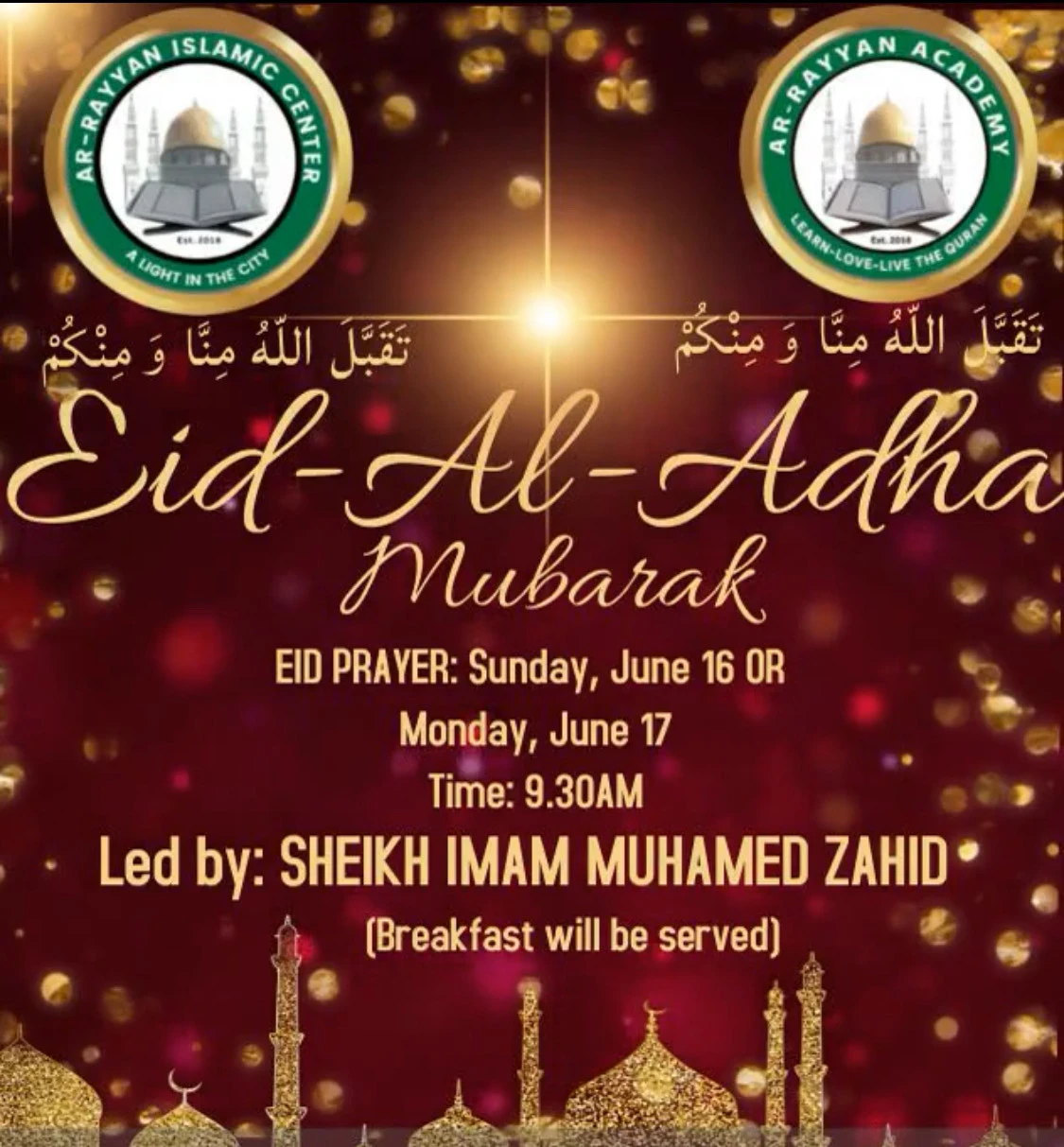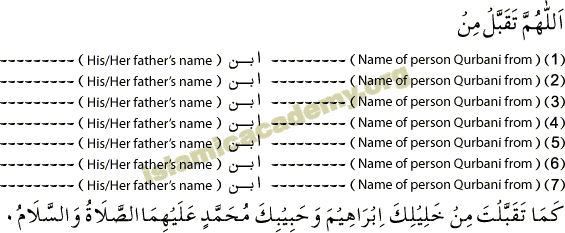Menu

(I) Conditions for an animal to be a valid sacrifice for Eid A-Adha
Condition 1
It should be from the an’aam class which includes animals such as camels, cattle, sheep, and goats.
Condition 2
The animal should have reached the age stipulated in Islamic law because there is a minimum age requirement for an animal to be considered valid for sacrifice. Generally, this means that the animal should be an adult. Age requirements are as follows:
Condition 3
It should be free of any deficiencies which will make it unsuitable for sacrifice. There are four such deficiencies to watch out for:
The above faults will make an animal unsuitable for sacrifice. More severe faults than the above or others similar to them will also make the animal unsuitable.
Condition 4
The animal should belong to the person who is offering the sacrifice, or he should have permission for that either on the grounds of Islamic law or from the owner. The sacrifice is not valid if the animal slaughtered does not belong to the person who is sacrificing it, such as one that has been taken by force, stolen, or taken on the basis of a false claim, etc, because it is not permissible to draw closer to Allah by means of sin. A sacrifice offered by a guardian from the property of the person under his care is valid, if done with permission.
Condition 5
No one else should have any rights to the sacrificial animal; the sacrifice of an animal that is held in pledge is not valid.
Condition 6
It should be slaughtered at the time specified in Islamic law, which is from after the Eid prayer on the Day of Sacrifice (10th of Dhul-Hijjah) until sunset on the last of the days of al-Tashreeq, which is the 13th of Dhul-Hijjah. So the days when the sacrificed may be offered are four:
Whoever slaughters it before the Eid prayer is over, or after sun sets on the 13th of Dhu’l-Hijjah, his sacrifice is not valid. But if he has an excuse for delaying it beyond the days of Tashreeq, such as if the animal ran away, without there being any negligence on his part, and he could not find it until after the time was over, or he appointed someone else to slaughter it and that person forgot until the time was over, then there is nothing wrong with slaughtering it after the appointed time.
It is permissible to slaughter the udhiyah at any time, night or day, but it is better to slaughter it during the day, and it is better to slaughter on the day of Eid after the two khutbahs. Each day is better than the day that follows it, because that means that one is hastening to do good.
(II) The Way of Qurbani & Dua
Place the animal of Qurbani on the left side in such a way that its’ face is towards the Qibla and put the left leg on its side. And say this duaa before slaughtering:

Then slaughter the animal with a sharp knife whilst reading:
![]()
If the Qurbani is for oneself then read the following duaa after the zabh (slaughter):

If the Qurbani is on another’s behalf then in the above arabic dua replace ![]() with
with ![]() , then the name of the person.
, then the name of the person.
If the animal is shared then read the duaa by writing it down like so:

The animal offerings are among the rites decreed by GOD for your own good. You shall mention God’s name on them while they are standing in line. Once they are offered for sacrifice, *you shall eat therefrom and feed the poor and the needy*. This is why we subdued them for you, that you may show your appreciation.” (Qu’ran Sura Al-Hajj 22:36)